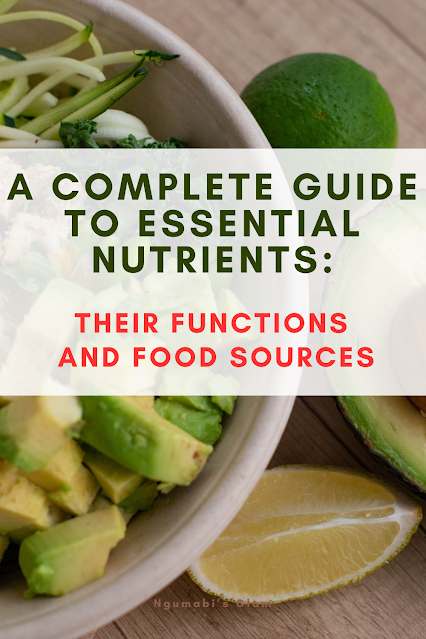A Complete Guide to Essential Nutrients: Their Functions and Food Sources
A Complete Guide to Essential Nutrients: Their Functions and Food Sources
Our bodies require various nutrients to function optimally, maintain energy levels, and prevent diseases. These nutrients come from our food and play crucial roles in various bodily functions. Understanding the different types of nutrients, their benefits, and the best food sources can help you make healthier dietary choices.
The Six Essential Nutrients and Their Functions
1. Carbohydrates: The Body’s Main Energy Source
- Function: Provides energy for daily activities and brain function.
- Sources: Whole grains (brown rice, oats, whole wheat bread), fruits (bananas, apples, berries), vegetables (sweet potatoes, carrots), and legumes (beans, lentils).
2. Proteins: Building Blocks of the Body
- Function: Supports muscle growth, tissue repair, and immune system function.
- Sources: Lean meats (chicken, fish, turkey), dairy products (milk, yoghurt, cheese), eggs, legumes (lentils, beans, chickpeas), and nuts.
3. Fats: Essential for Brain and Heart Health
- Function: Provides long-lasting energy, supports cell growth, and protects organs.
- Sources: Healthy fats from avocados, nuts (almonds, walnuts), seeds (flaxseeds, chia seeds), olive oil, and fatty fish (salmon, tuna).
4. Vitamins: Regulating Body Processes
- Function: Supports immune function, vision, skin health, and overall bodily processes.
- Sources:
- Vitamin A: Carrots, sweet potatoes, spinach.
- Vitamin B-complex: Whole grains, dairy, eggs, meat.
- Vitamin C: Citrus fruits, bell peppers, strawberries.
- Vitamin D: Sunlight, fortified dairy, fish.
- Vitamin E: Nuts, seeds, spinach.
- Vitamin K: Leafy greens, broccoli, Brussels sprouts.
5. Minerals: Supporting Various Bodily Functions
- Function: Essential for bone health, oxygen transport, nerve function, and muscle contraction.
- Sources:
- Calcium: Dairy products, tofu, leafy greens.
- Iron: Red meat, beans, lentils, spinach.
- Magnesium: Nuts, seeds, whole grains, dark chocolate.
- Potassium: Bananas, oranges, potatoes, yoghurt.
- Zinc: Shellfish, meat, dairy, nuts.
6. Water: The Most Vital Nutrient
- Function: Helps in digestion, temperature regulation, nutrient transport, and detoxification.
- Sources: Drinking water, herbal teas, fruits (watermelon, oranges), and vegetables (cucumbers, celery).
Final Thoughts: The Importance of a Balanced Diet
Each nutrient plays a vital role in maintaining a healthy body. By eating a well-balanced diet that includes a variety of these essential nutrients, you can support overall well-being, prevent diseases, and sustain energy levels.
A healthy lifestyle starts with what you put on your plate. Prioritize whole foods, stay hydrated, and nourish your body with the right nutrients!
What are your favourite nutrient-rich foods? Share in the comments below!












%20.png)





0 Comments
Thanks for sharing your thoughts below.